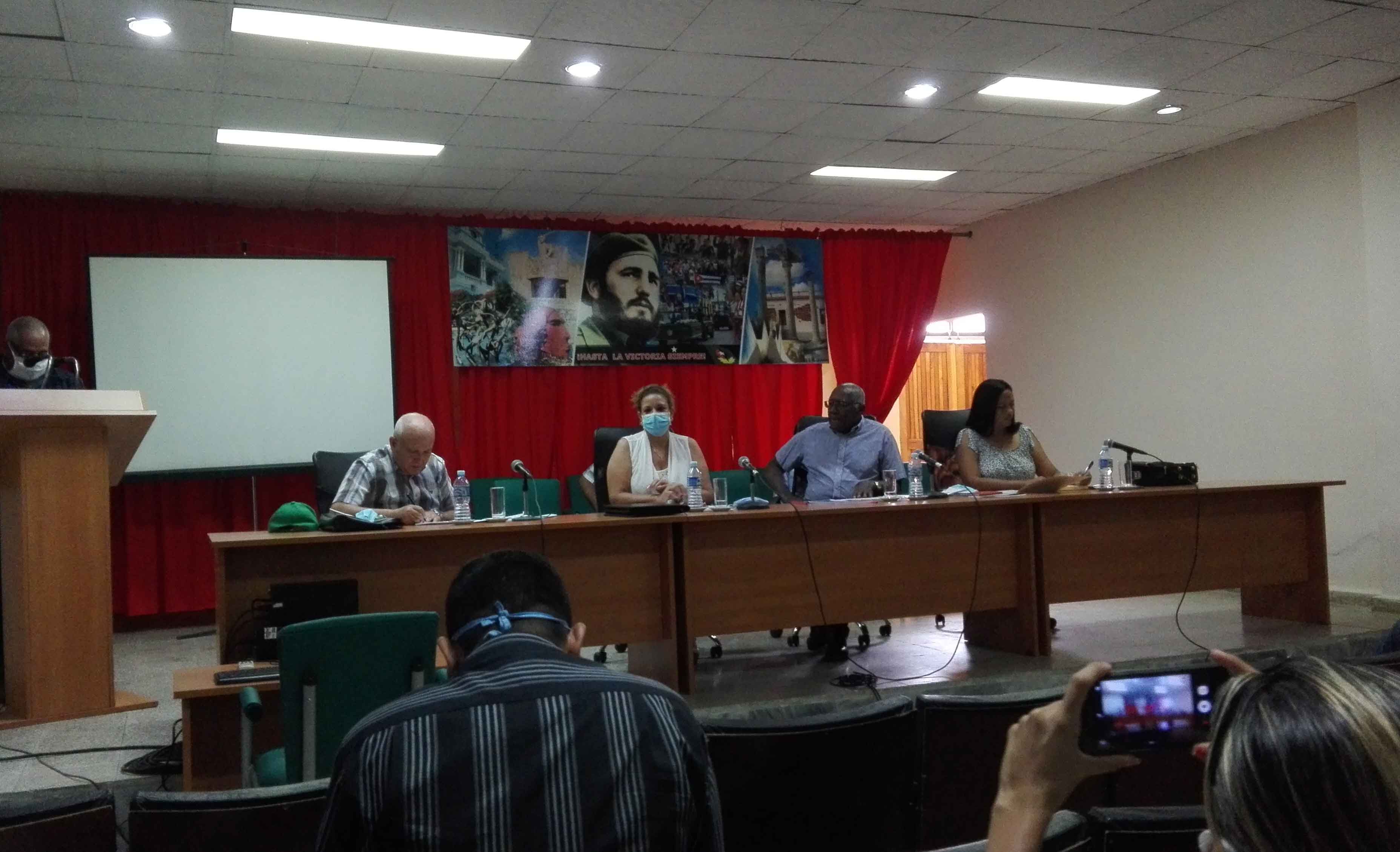
The Cuban Vicepresident, Salvador Valdés Mesa, gave a broad look at the sugar sector in the province of Las Tunas, who indicated working efficiently to transform the sugarcane activity and restore it to the place it has always occupied due to its economic, historical and traditional importance.
After listening to the report of the results of the last harvest, presented by Rafael Pantaleón Quevedo, director of the Sugar Group in the territory, the leader oriented to solve the current problems, especially those related to the workforce of the sugar mills and the sugarcane production units.
He explained that they have not yet defined which plants will mill in the country; but those who do so must improve the indicators of cutting, loading and transport the cane, in addition to reducing fuel costs and avoiding the prolongation of the manufacturing process because sometimes it generates significant losses.
During the meeting, Valdés Mesa recalled that "this is an eminently agricultural and sugar region and cannot afford to stop milling because that would imply the loss of employment for workers, less financial income and a lack of raw materials for the production of various derivatives.
"The country's leadership is willing to prioritize the sector. And the sector must contribute to social-economic development as much as possible; many experiences are accumulated, as it was the main economic branch for several decades.
"You can never talk about the history of Cuba and ignore the sugar producers. They are part of the nation and can still contribute a lot, so we are obliged, all of us, to save the sector."
When evaluating the delays in the current sowing campaign, he insisted that sugarcane growing should be increased and the southern municipalities should be prioritized, those with less fertile soils and which have presented more difficulties in their processes; even these days they have no land in preparation.
The Cuban Vice President recalled that agricultural and industrial management generates many derivatives that report financial income to the country or that substitute imports, as occurs with various lines of animal food, (saccharomyces, torula, and pure honey), which can prevent the purchase of corn and soybeans used in the manufacture of feed.
At another point in his speech, he referred to the necessary diversification of work in the sector's production units, such as planting various short-cycle crops and raising animals in livestock modules to feed the workers, their families and residents in the surroundings.
Deputy Prime Minister Jorge Luis Tapia Fonseca, who previously visited the municipalities of Amancio and Colombia, was also in the province. In both tours, he spoke with the producers and evaluated sugarcane production, the sowing of pasture varieties and forages for animal nutrition and the fluctuation of human resources.
For what was appreciated in the exchanges, he indicated an urgent and comprehensive analysis in the Amancio Rodríguez base business unit, in which the availability of the labor force, the quantity of sugarcane planted, the estimate of yields, the available equipment and other elemental aspects for the next harvest must be assessed.





